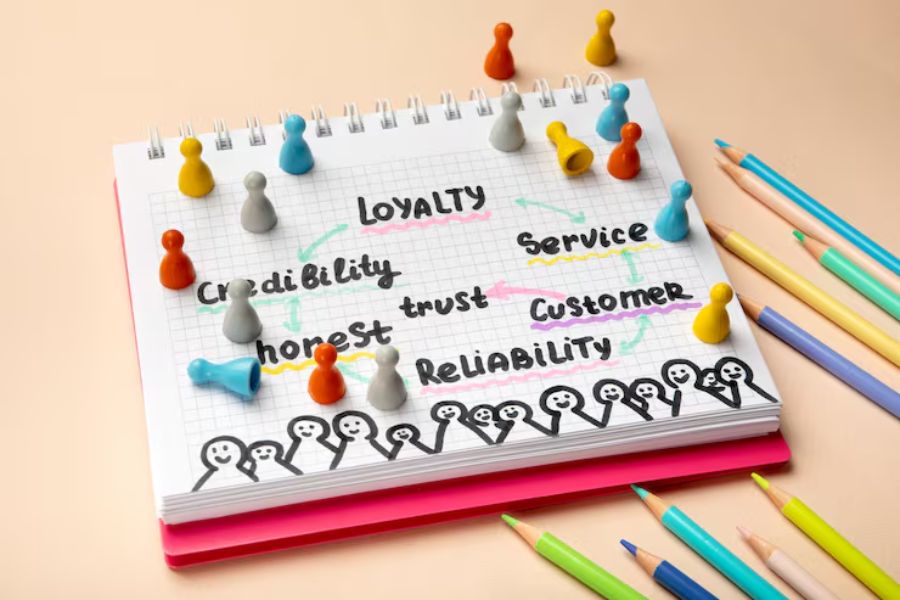Modern businesses must find innovative ways to connect with their customers. Personalization has emerged as a key strategy that improves customer engagement and builds lasting relationships.
Brands can create more meaningful interactions that resonate with their target audience. Implementing personalized marketing involves analyzing customer data and delivering customized content that reflects their needs and desires. Here are six ways personalized marketing plans can drive better customer engagement and contribute to business growth.
Learn About Your Customer’s Journey
If you are looking to engage customers, comprehend their journey from awareness to purchase. Mapping out this journey allows businesses to identify touchpoints where personalized marketing can make an impact. Businesses need to recognize that customers do not follow a linear path. Instead, they move back and forth between stages.
Brands can create tailored content that addresses specific concerns at each touchpoint. A customer researching a product may appreciate informative blog posts that highlight the product’s benefits. Providing tailored recommendations during the shopping phase can improve the shopping experience. With a solid understanding of the customer journey, marketing messages will remain relevant.
Measure Success with Personalization
To determine the impact of personalized marketing, measuring success is a must. Key performance indicators (KPIs) like conversion rates, click-through rates, and customer retention rates provide insights into how well personalized strategies are working. By analyzing this data, businesses can identify what is resonating with their audience and optimize campaigns accordingly. Collaborating with digital marketing agencies like Intellibright can offer additional expertise in measuring the effectiveness of personalized marketing efforts. These agencies can help businesses navigate the complexities of measurement and provide actionable recommendations on how to improve engagement.
Continuous evaluation of personalized strategies so that businesses remain agile and can adjust their plans based on real-time data and customer feedback. As companies become more adept at tracking their success, they can create effective marketing plans that drive higher levels of engagement and customer loyalty.
Leverage Data for Customization
Data is the backbone of any personalized marketing strategy. Businesses must invest in robust data collection and analysis capabilities to glean insights about customer preferences. Companies that utilize customer relationship management (CRM) systems and analytics tools can track behaviors, preferences, and past interactions. This data can be harnessed to segment customers into specific groups, allowing for the delivery of customized content that resonates with each segment.
Predictive analytics can forecast future behaviors and enable companies to address customer needs. E-commerce platforms recommend products based on previous purchases or browsing history. Brands can create compelling marketing strategies that adapt to customer needs in real time for better engagement and satisfaction.
Create Targeted Content
Crafting targeted content involves producing materials that speak directly to the unique needs of different audience segments. This could range from personalized email campaigns that address specific consumer interests to tailored website content that elevates the user experience. Visual content can be customized for different demographics so that it captures attention and drives engagement.
Personalization makes the content more relevant and increases conversions. For businesses focusing on building brand loyalty, consistently delivering targeted, high-quality content is a must. This strategic approach keeps customers informed and engages them in a meaningful way.
Utilize Multi-Channel Strategies
Customers interact with brands across multiple platforms. Businesses must adopt a multi-channel marketing approach that provides a seamless experience across all touchpoints. Tailor messages and content to align with each platform’s unique characteristics and maintain a consistent brand voice. Social media, email, websites, and mobile apps all serve as avenues for personalized marketing.
Engaging customers through their preferred channels amplifies the chances of interaction and boosts the effectiveness of campaigns. A customer who frequently engages on Instagram might respond better to personalized promotional content on that platform rather than through email. By understanding where their customers spend their time, businesses can allocate resources efficiently and optimize their strategies for maximum engagement.
Cultivate Customer Relationships
Personalized marketing is all about building relationships. Customers appreciate it when brands acknowledge their preferences and engage with them beyond promotional content. Creating a sense of community can improve customer engagement and build loyalty. Brands can use loyalty programs, feedback surveys, and interactive content to create a two-way conversation with their audience. When businesses encourage customers to share their thoughts and preferences, they can fine-tune their strategies to align with audience expectations.
Consistent communication reinforces this relationship and makes customers feel valued. A strong customer relationship results in higher referrals and positive word-of-mouth. The goal is to exceed customer needs and forge a connection that encourages long-term loyalty and engagement.
Effective personalized marketing is a powerful tool for improving customer engagement. With these easy six tips, businesses can improve their marketing efforts. These strategies connect brands with customers on a deeper level and drive measurable business growth. By embracing personalized marketing, companies create tailored experiences that resonate, leading to a more engaged and loyal customer base.


